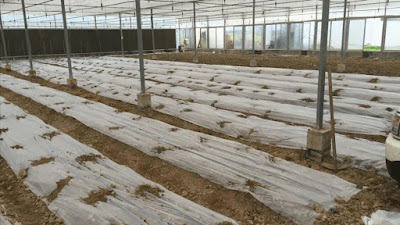The application of agricultural plastic film has brought a revolutionary breakthrough in saving water and improving crop yield. However, with the rapid popularization of plastic film covering technology, some waste agricultural film has not been recycled in time, becoming white pollution in the field, which constitutes a potential for the green development of agriculture. threaten.
Xinjiang is the region with the largest mulching area and the largest amount of mulching film in China. Nearly 1 million tons of residual film are collected every year and stacked at the recycling site. How to reuse it better and faster is still a difficult problem.
The China Cotton Research Institute has been concentrating on the elimination of mulch film residues in Xinjiang farmland for the past five years, and has successfully developed a set of solutions.
The production line of the whole program is energy-saving and environmentally friendly without using water in the production process, and there is no need to separate the straw, cotton, weeds and other debris in the mulch residue. One production line can easily solve about 10 tons of mulch residue per day.
Strengthen the recycling of waste agricultural mulching film and remove white garbage in the field
Advantages of the solution for the recycling and reuse of agricultural residue film
1. There is no need to rinse the residue of the plastic film, and the production process basically does not use water, saving water resources.
2. There is no need to separate the straw, cotton, weeds and other debris in the mulch residue.
3. It has a wide range of applications and can produce a variety of finished products, such as trays, trash cans, well covers, cotton poufs, floor tiles, etc.
4. The safety protection is high, and the cover is installed on the outside of the equipment to ensure the safety in the production process
5. Energy saving and environmental protection, no waste water and waste gas will be produced in the production process, effectively reducing environmental pollution.
Raw material and finished mulch film display
All recycled waste agricultural film can be processed into plastic trays, cellar covers, floor tiles, trash cans and cotton piers through machines, and then according to the quality of registration, various products can be made and sold on the market.
This trip to Xinjiang aims to promote and strengthen the recycling and utilization of waste agricultural film, promote the green, low-carbon and high-quality development of agriculture, and prevent and control agricultural pollution. The next step will be to accelerate the recycling of waste agricultural film, continuously improve the level of resource utilization of agricultural waste, protect the agricultural ecological environment, and promote the green, low-carbon and sustainable development of agriculture in the region.





No comments:
Post a Comment